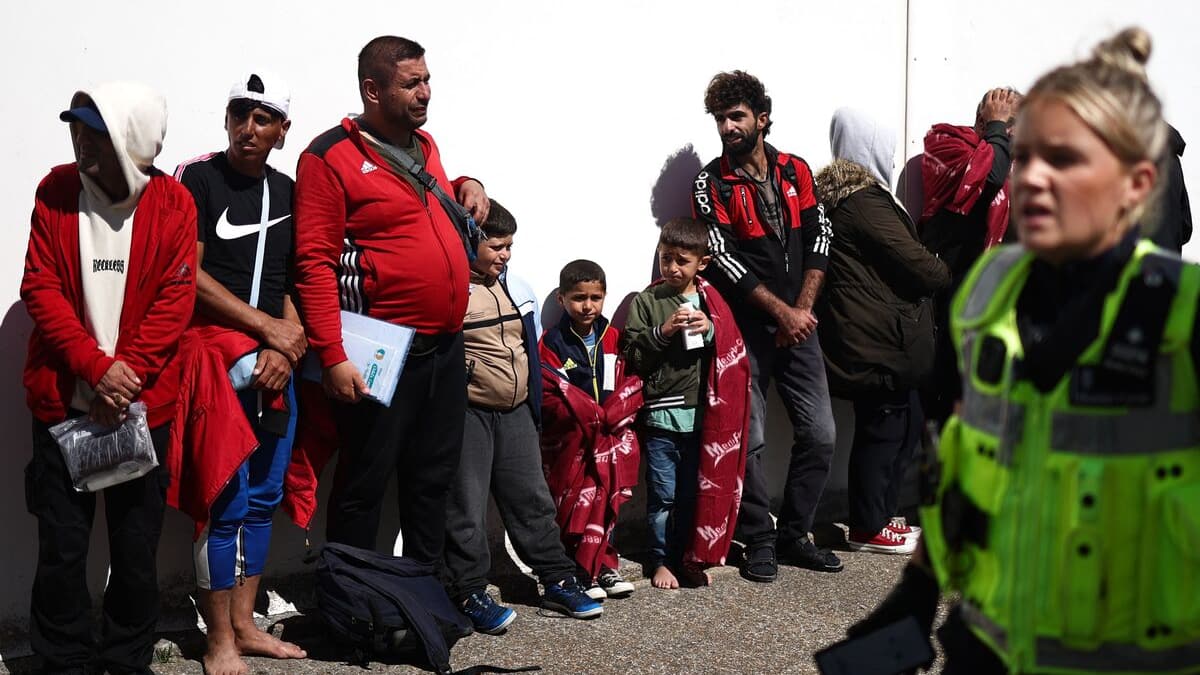
Fear gripped asylum seekers staying on board a barge in southern England, after the British Parliament passed a law allowing the expulsion of migrants to Rwanda. One of them even shouted, “I'm dying.”
• Read also: International protests after the UK passed the law to deport migrants to Rwanda
Will they be on the list of people to be deported? These immigrants don't know that right now.
But “everyone is talking about Rwanda on the Baby Stockholm,” says Atop, a 23-year-old Sudanese who arrived in the UK a year ago from Calais on a small inflatable boat.
He has been housed for two weeks on a dockside ship, Baby Stockholm, installed last summer to house up to 500 asylum seekers, in an area closed to the public at Portland Harbour, in Weymouth, a seaside resort on the Dorset coast. Southern England.
This barge is very controversial, especially for the living conditions on site, but even that seemed secondary on Tuesday.
Atoep came to clear his head in Weymouth town centre.
This young man, who preferred to remain anonymous, says: “A friend called me from London this morning to tell me that the government was sending migrants like me to Rwanda.” “But then Rwanda will send me to Sudan,” fears Atop, whose mother and sister, he says, live in a refugee camp in Chad, after fleeing the war in Darfur.
Rwanda “It's not good, it's not safe,” he continues in halting English.
The bill, which was adopted Monday night to Tuesday, will allow the expulsion of asylum seekers who illegally entered Rwanda. Their asylum application will be examined in the East African country and they will not be able to return to the UK whatever the outcome.
The project was announced two years ago by Boris Johnson, then Prime Minister, but was blocked by the European Court of Human Rights, then legal challenges and a months-long battle in Parliament.
The United Nations asked London to “reconsider its plan”, but Prime Minister Rishi Sunak promised to fly planes to Kigali in early summer.
“Kill me and bury me”
“I would rather die than go to Rwanda,” responded Martin, a 28-year-old South African national, who arrived in the UK just over a year ago and was on board for three months. He does not want to explain why he left his country, explaining that it was “very painful.”
But there is no question of going to Rwanda: “Better kill me and bury me,” he decides.
He explains that he has not yet obtained a document from the Ministry of Interior. “I don't know if I will be deported to Rwanda. (…) But I know it might happen, so yes, I'm afraid.
No one knows exactly who is likely to be deported, adding to the fears of asylum seekers.
Ahmed and Mohammed, two Afghans aged 26 and 27, believe they will not be targeted. “But no one really knows,” the first adds.
They arrived in the UK legally in 2022 and 2023, on student visas thanks to university scholarships. Both have requested asylum and are awaiting a response.
For Ahmed, there is no doubt that the expulsion policy to Rwanda “will be effective.”
The Conservative government's stated aim is to discourage migrants from coming to the UK. He believes that “people will not come if they know that they are at risk of being deported to Rwanda.” They will instead go to another country according to him.
But Mohammed, who was studying international law a few months ago, does not share his opinion: “This will not stop the migrants. “There will be legal action, a lot of legal action.”
The two Afghans then continue on to Weymouth. Their dream is to go back to school. Meanwhile, they go to the small town library.






